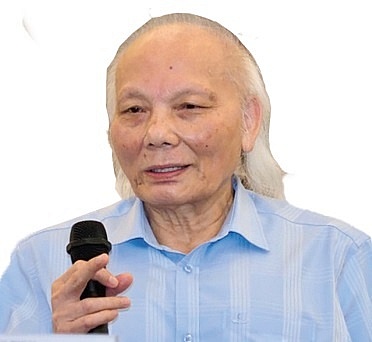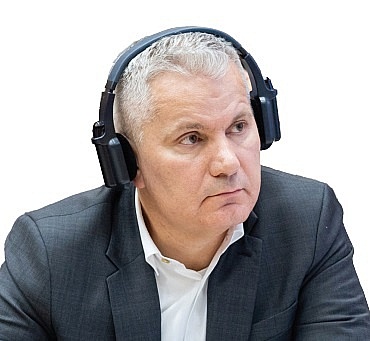Revenues left untapped in betting arena
During a conference last week held by the Vietnam Association of Foreign Invested Enterprises, experts discussed proposed amendments to Decree No.06/2017/ND-CP, which governs horse racing, greyhound racing, and international football betting. They emphasised that the current decree had become outdated and stressed the urgent need to create a new regulatory framework to address current industry challenges.
Amendments to Decree 06 are expected to be enacted in 2025.
“Socioeconomic development is different from almost 10 years ago when Decree 06 was composed. Today, science and IT have been developing rapidly, so it is not so difficult to manage this business, and building a new decree around betting services is important,” said Hoang Ngoc Nhat, chairman of local firm Thien Phuc JSC, which is showing interest in the horse racing sector.
According to estimates from both domestic and international researchers, annual spending on betting activities, primarily football betting, ranges around $6 billion, potentially reaching as high as $10 billion. The market is experiencing an annual growth rate of 11 per cent, but a significant portion of this money flows out of the country. By implementing effective management and control measures, Vietnam could not only prevent the loss of valuable resources but also generate substantial tax revenue.
“There are many investors eager to invest in projects, especially football betting. However, when they approach the regulations in Decree 06, they encounter numerous legal obstacles, unreasonable provisions, and practical challenges. Even if they proceed, losses are almost certain,” Nhat said.
Particularly, the 5 per cent revenue contribution requirement should be omitted from the new decree, he urged. Unlike other conditional business types, football betting businesses must allocate at least 65 per cent of revenue (sometimes up to 90 per cent) for payouts, in addition to paying VAT, special consumption tax, and corporate income tax.
“When combined with taxes and payouts, there is little to no room for cost recovery. A payout of 70 per cent of revenue would inevitably result in a 5 per cent deficit, leading to heavy losses for investors and rendering projects unfeasible,” Nhat said.
As an investor in this business model, Nguyen Ngoc My, chairman of Vabis Group, is struggling with numerous obstacles.
Despite receiving investment certificates and operating for a period, projects for horse racing, greyhound racing, polo, and equestrian clubs in Lam Dong province, as well as a greyhound racing track in Ha Tinh province, have come to a standstill. This is due to compliance requirements outlined in Decree 06, which include integrating the projects into provincial planning, obtaining the prime minister’s approval, and preparing the necessary documentation.
“Despite receiving approval in 2018, a horse racing project in Hanoi’s Soc Son district has also yet to be implemented due to several obstacles. These include challenges related to Decree 06, legal issues concerning capital contributions and transfers, as well as difficulties in land acquisition and changing land use purposes,” My said.
He proposed to issue betting business licences for all three distribution methods (on-site and off-site terminals, telephone, and internet) at the beginning. “If the enterprise meets the requirements, it is recommended to issue the licence for all three betting ticket distribution methods at once to avoid delays,” said My.
With the rapid growth of the global gaming and betting market, particularly in areas like animal racing and football, many countries have ensured legal sports betting can flourish. Several ASEAN countries, including Singapore, Malaysia, Thailand, Indonesia, and Cambodia, have legalised such betting, reflecting a significant shift towards regulated betting in the international arena.
Can Van Luc, chief economist at BIDV, said the amendment and enforcement of Decree 06 should follow a two-phase approach based on international experiences.
“In a pilot phase, such as 2025-2028 or 2025-2030, projects should be defined for horse racing, greyhound racing, and international football betting, while the draft currently specifies one company for the pilot in international football betting,” Luc said.
Economists have indicated that after the pilot phase, the formal implementation or legalisation of the decree can be considered based on an assessment of the development and contributions made by betting businesses. The goal should be to expand the scope of legal betting activities beyond the current three domains.
This expansion should align with Vietnam’s diverse recreational and cultural activities, reflecting regional identities and unique tourism experiences. Examples include buffalo fighting in Haiphong; cockfighting in Binh Dinh, Bac Ninh, Thai Binh, Hanoi, and Hai Duong; greyhound racing in localities like Phu Quoc and Ha Tinh; and elephant racing in some Central Highland provinces.
According to the Ministry of Finance, currently Vietnam has only one company certified for betting on greyhound races: SES Sports-Entertainment Services, operating the Lam Son greyhound racing track in Vung Tau. It was essentially licensed in 2000, before Decree 06 was enacted.
No companies have been licensed for international football betting, even though Decree 06 permitted a pilot. Proposals for horse and greyhound racing projects in seven provinces and cities remain on hold, with no construction or betting activities initiated. Among these are Soc Son horse racing track in Hanoi, with investment of $420 million, and Thien Ma-Madagui greyhound racing track in Lam Dong, at a cost of $63 million.
Some companies operating lottery and electronic gaming businesses have expressed interest in expanding. VNG generates 70-80 per cent of its revenue from online gaming services and is expanding into markets such as Hong Kong, Thailand, Singapore, the Philippines, Taiwan, and Indonesia.
| Prof. Dr. Nguyen Mai, chairman, Vietnam Association of Foreign Invested Enterprises
The government must issue a new decree on sports betting to implement the Law on Physical Training and Sports, particularly Article 67a. This should involve applying digital technologies and leveraging IT centres to curb illegal betting, facilitate legitimate participation, and regulate this potential market effectively. Our first recommendation is to amend Article 12 to require all technical equipment, including servers, backup servers, and data warehouses, to be located within Vietnam. This would enable state management agencies to exercise 24/7 oversight. Additionally, articles 14 and 15 should be revised to allow betting ticket distribution via phone and the internet after at least one year of distribution through terminals at racetracks (for horse and dog racing) and fixed ticket sales points (for international football betting). Article 42 should also be amended to reduce the contribution rate of enterprises to the budget to a more reasonable level. Instead of taxing revenue, a contribution of 5 per cent on profits would be more appropriate. Similarly, Article 48 should be adjusted to permit advertising that does not directly or indirectly encourage betting participation. Ads must avoid targeting individuals under 21, using attention-grabbing sounds or images, implying skill-based winning, or providing betting advice. Finally, Article 63 should include provisions for enterprises that have already received a certificate of eligibility for betting businesses before this decree takes effect. Iain Child, managing partner Penta Investments
With 20 years of experience in market liberalisation, we’ve observed a clear trend: post-implementation, there is a noticeable shift from offshore to regulated businesses. This allows for effective control and enforcement, supports sports and media, retains capital, creates jobs, and significantly increases income tax revenue for the government. Effective legislation should include optimal gambling taxation – ideally capped at 25 per cent of operators’ gross gaming revenue – to ensure long-term sustainable market development. It is crucial to ensure that licensed operators dominate the market (over 80 per cent) to maximise tax collection (gaming, employment, and corporate taxes) and deliver additional benefits to the state, such as employment opportunities, marketing spend, and sponsorships. Another key factor is effective player protection through strict responsible gaming service and digital safety measures, such as deposit limits and robust age verification systems. A hallmark of an effective legal framework is its ability to combat money laundering and the misuse of funds through rigorous e-verification and anti-money laundering procedures. Building an efficient monitoring and enforcement system is also essential, ideally involving inter-governmental cooperation, such as within ASEAN. A strong legal framework fosters predictability and clarity in risk assessment, giving investors confidence. This encourages investment and provides fair mechanisms for conflict resolution. Jan Řehola, director, institute for Gambling Regulation
It is virtually impossible for online gaming regulators to keep pace with the technological innovations rapidly transforming the industry. Emerging trends like blockchain, cryptocurrencies, VR, and AI – combined with differing cultural, economic, and societal contexts – make the adoption of foreign regulatory models challenging. Regulatory frameworks often lag behind these technological developments, leaving many gambling products outside legal oversight. A regulated gaming market offers several benefits. Only strong, reliable entities that meet strict conditions (such as obtaining licences and adhering to anti-money laundering measures) operate in the market. Clear conditions can ensure fair gameplay, protect players through measures like age limits and self-imposed restrictions, and create significant tax revenues for the state. To realise these benefits, regulation must cover as many games and channels as possible, as the state can only control regulated operators. The presence of the internet is non-negotiable, and regulation must adapt to this reality. A critical element is tackling the illegal market. Regulation is ineffective if the majority of gambling occurs in the black market. Consumers are left unprotected, and the state forfeits tax revenue. Governments must combat the illegal market using every available tool. The regulatory framework should also aim to keep the legal market attractive to players. Bans on products or features that are popular with players, such as bonuses or cashouts, drive them to illegal operators. Similarly, advertising restrictions should focus on regulation rather than outright prohibition. |
What the stars mean:
★ Poor ★ ★ Promising ★★★ Good ★★★★ Very good ★★★★★ Exceptional
Related Contents
Latest News
More News
- Citi economists project robust Vietnam economic growth in 2026 (February 14, 2026 | 18:00)
- Sustaining high growth must be balanced in stable manner (February 14, 2026 | 09:00)
- From 5G to 6G: how AI is shaping Vietnam’s path to digital leadership (February 13, 2026 | 10:59)
- Cooperation must align with Vietnam’s long-term ambitions (February 13, 2026 | 09:00)
- Need-to-know aspects ahead of AI law (February 13, 2026 | 08:00)
- Legalities to early operations for Vietnam’s IFC (February 11, 2026 | 12:17)
- Foreign-language trademarks gain traction in Vietnam (February 06, 2026 | 09:26)
- Offshore structuring and the Singapore holding route (February 02, 2026 | 10:39)
- Vietnam enters new development era: Russian scholar (January 25, 2026 | 10:08)
- 14th National Party Congress marks new era, expands Vietnam’s global role: Australian scholar (January 25, 2026 | 09:54)




 Tag:
Tag:



















 Mobile Version
Mobile Version